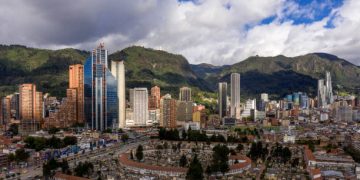Supply Chain Report – 10/20/2025
The United States plans to reduce financial assistance to Colombia and impose new tariffs on its exports, citing concerns about the South American nation’s efforts to curb narcotics production. The announcement marks a significant shift in U.S. relations with one of its long-standing partners in Latin America.
President Donald Trump said the decision follows what he described as limited progress in addressing drug manufacturing and trafficking. In public remarks and social media posts, Trump stated that Colombia must “take stronger action” against illegal narcotics operations, warning that further measures could follow if the issue persists.
Speaking to reporters aboard Air Force One, Trump noted that new tariffs targeting Colombian exports would be announced soon. He said the move was intended to encourage stronger anti-narcotics initiatives, describing Colombia as a country with “major drug production challenges.”
U.S. Defense Secretary Pete Hegseth confirmed that American forces had conducted an operation against a vessel suspected of carrying narcotics linked to an armed group in Colombia. He said the action was part of ongoing efforts to disrupt drug networks in the region, though he did not provide additional evidence or operational details.
Colombian President Gustavo Petro responded to the announcement, rejecting the accusations and reaffirming his government’s commitment to combating illegal drugs. “Working to promote peace in Colombia is not the same as supporting drug trafficking,” Petro said, adding that his administration remains dedicated to reducing coca cultivation and drug-related violence.
The Colombian Foreign Ministry called the U.S. president’s remarks “a direct challenge to national sovereignty,” emphasizing that the country continues to invest significant resources and personnel in anti-narcotics operations. Defense Minister Pedro Sánchez noted that Colombia “has used all its capabilities and lost many men and women” in efforts to combat drug production and trafficking.
Colombia has historically been one of the largest recipients of U.S. aid in Latin America, receiving billions of dollars in support through programs focused on security and anti-drug efforts. However, recent reports from the United Nations indicate that coca cultivation reached record levels last year, reigniting debate about the effectiveness of current strategies.
The U.S. has also increased its regional presence, deploying naval and air assets to monitor suspected drug trafficking routes. While officials maintain that the operations are aimed at curbing transnational crime, regional leaders have expressed concern over the growing tension surrounding the issue.
Analysts say the new measures could strain diplomatic relations between Washington and Bogotá, particularly as Colombia continues to balance peace-building efforts with the need to address illicit drug production in rural areas.
Both governments have signaled a willingness to maintain dialogue, but the latest developments underscore the challenges of managing long-standing cooperation amid shifting policy priorities.
#TradePolicy #USColombiaRelations #EconomicUpdate #LatinAmericaNews #DrugPolicy















